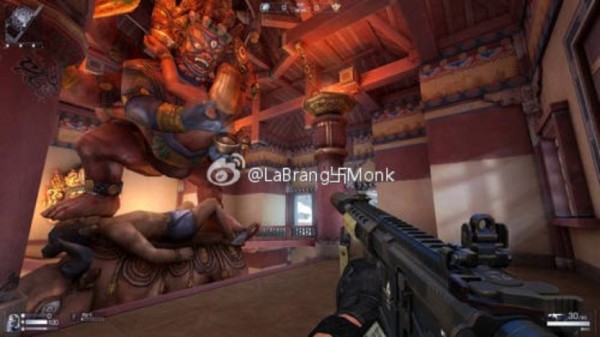
A screen grab posted on Chinese social media show the game setting in Tibetan Buddhist monasteries.
A Chinese video game developer has apologized for using Tibetan Buddhist monasteries as a setting for a violent video game, following strong complaints by Tibetan and Chinese netizens. Some of these settings have been now been removed from the game. News about the game went viral, attracting attention from a Tibetan Olympic medalist and well-known film-maker, with Tibetans expressing their hurt and anger about Tibetan monasteries being used as a setting for “a game of killing people”.
In a statement issued on December 19, NetEase, maker of the combat game Crisis 2015, expressed its “deepest regret to our honorable Tibetan compatriots” and removed two maps featuring machine-guns and other weapons being used in Tibetan temples. The games company said that: “In order to make the best possible representation of Chinese culture, some maps in ‘Crisis 2015’ used prayer flags, monasteries, Buddhist statues, stupas, and other elements of Tibetan Buddhism” but that in future they would “be more prudent and rigorous when selecting aspects of game design and content, giving as much consideration to the impact on culture and religion in order to avoid the occurrence of similar incidents.”
Tibetan Buddhist religion is integral to Tibetan identity, and Tibetans have struggled to protect their faith and practice despite oppressive measures from the Chinese authorities. There is also deep resentment about the appropriation of the Tibetan Buddhist culture by the Chinese Party state – even the video game manufacturer gave a message of ‘ownership’ over Tibet in its apology statement, saying that it had included the Tibetan Buddhist temples “in order to make the best possible representation of Chinese culture”.
But the use of Tibetan Buddhist settings in the game is also evidence of the popular appeal of Tibetan Buddhism to a Chinese audience. More Chinese people are practicing Tibetan Buddhism and have a sincere devotion to Tibetan Buddhist lamas, including the Dalai Lama in exile, and many Chinese netizens joined Tibetans in complaining about the video game.
Choyang Kyi, a prominent Tibetan athlete who won a bronze medal for China when competing in the 2012 London Olympics commented on social media in response to the game that “Tibetans have a bottom line, which is that you can’t disgrace and disrespect their faith”.
Film maker Pema Tseten from the Tibetan area of Amdo said in his comments that using a monastery as a setting for a game of killing people is “provocative and disgraceful”, and that not only the government, but Chinese people, should take a stand against it.
In other postings on Chinese social media before the apology was made some netizens urged a boycott, while one published the phone numbers of the game company and encouraged people to call them. One Tibetan, referring to Tibetan religious philosophy, said of the game: “Too disgusting – they aren’t afraid of karma, so they aren’t afraid of impermanence catching them.” Other comments cited the video game as being symptomatic of deeply engrained discrimination against Tibetans, with one simply saying: “The Chinese always bully us incessantly!”
Another netizen acknowledged the influence of Tibetan netizens in defending their religion and culture, saying: “You guys (Tibetan netizens) have great power. Today if you know Chinese, you should show your power.” In a reference to popular campaigns by influential figures in China, one netizen said: “It’s time for famous lamas and singers in China to forward this.”
Tibetan and Chinese netizens have achieved other successes through using social media. In June, 2013, there was a public outcry supported by Chinese celebrity actress Yao Chen and singer Han Hong after local media announced that there would be luxury boat tours across the sacred lake of Yamdrok Tso in Tibet. (In 2004, a teacher from Beijing had dropped a plan to swim across the holy Namtso Lake following outrage from both Tibetans and Chinese). Writer Liu Jianqiang reports that two environmental activists, one Tibetan and one Chinese, launched a campaign to “Save Yamdrok Lake” on Weibo (Chinese Twitter). Liu Jianqiang wrote: “Film star Chen Kun rallied his 17 million-plus followers: ‘Let’s leave something for the later generations! Don’t be blinded by short-term interests!’ […]The public outcry soon caught the attention of the local government. On June 18, @SaveYamrokLake received a private message from @Tibet Daily: ‘We are reporting in our morning paper that this project has already been suspended.’”[1]
These screen grabs posted on Chinese social media show some of the game settings in Tibetan Buddhist monasteries. These may now have been withdrawn from the game.
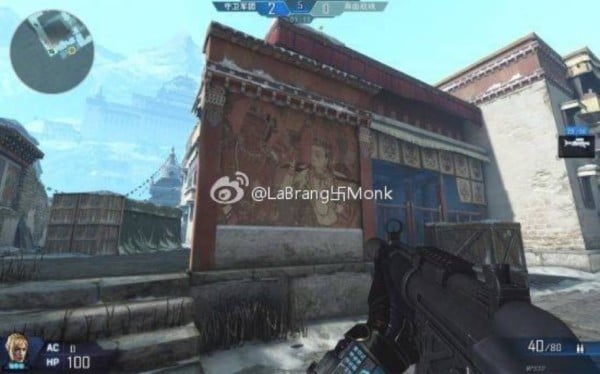
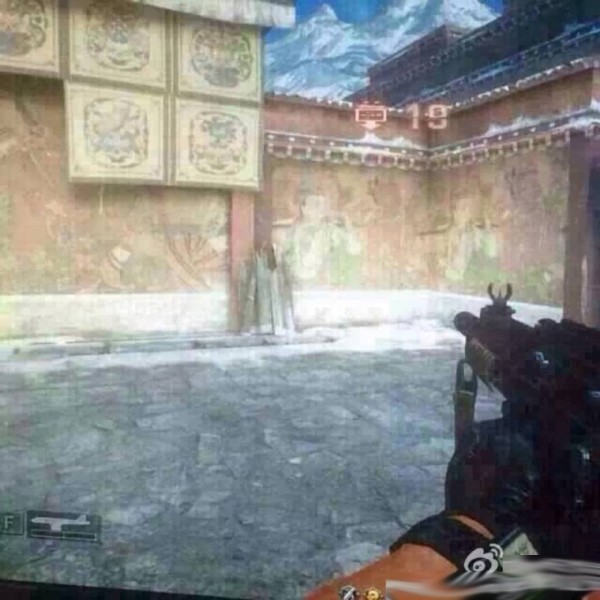
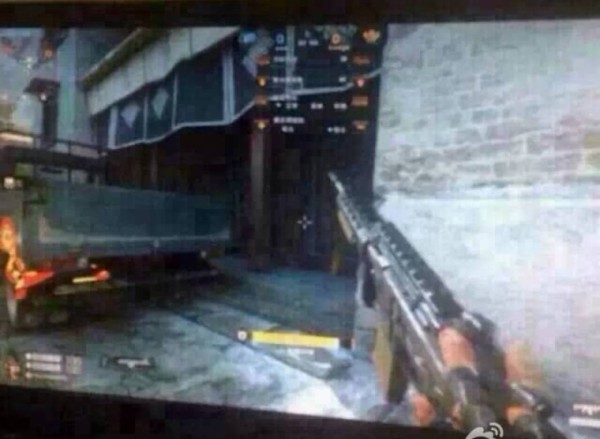
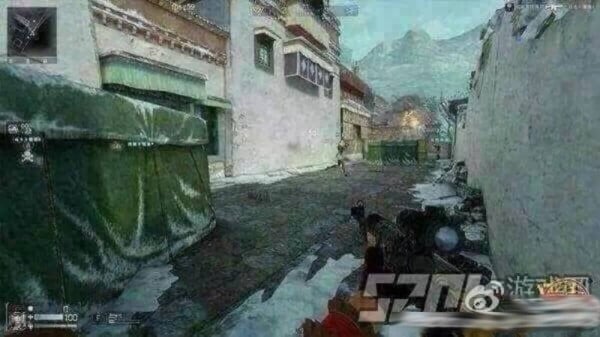
Footnote
[1] Liu Jianqiang, writing for China Dialogue, August 20, 2008, https://www.chinadialogue.net/article/show/single/en/5114-Tibetans-fight-tourism-on-holy-lakes

